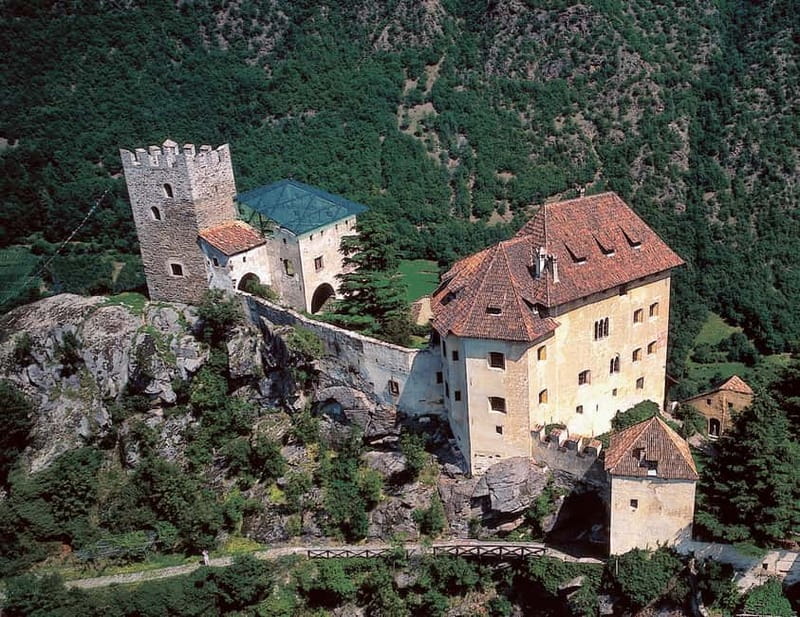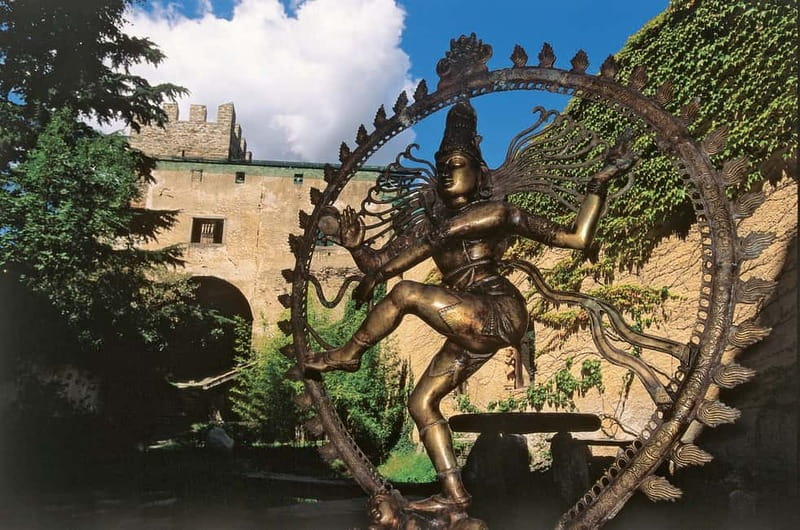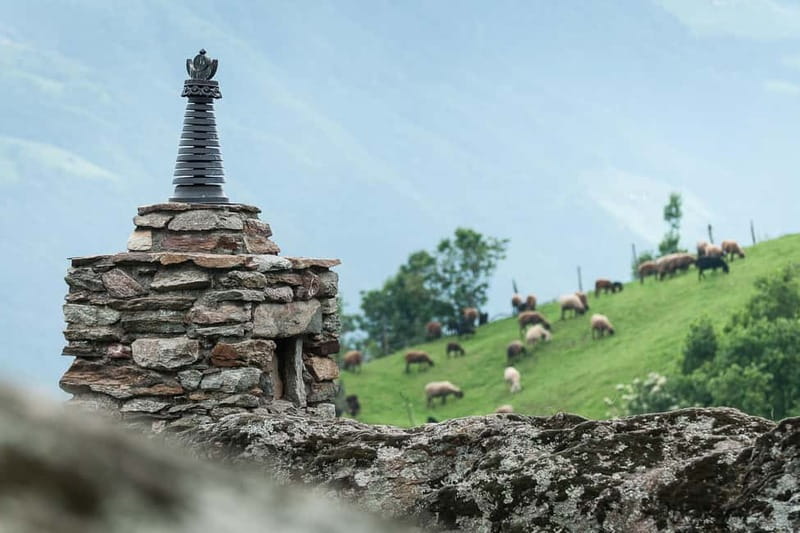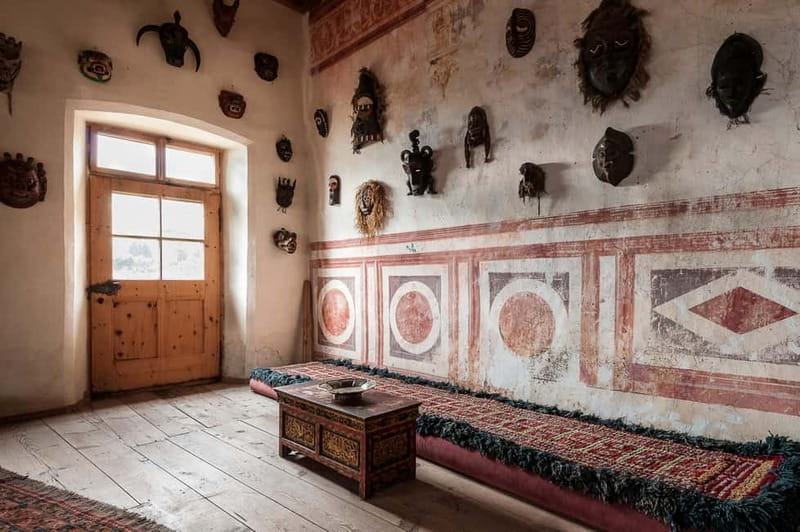Travelers looking for a meaningful blend of art, spirituality, and mountain lore will find plenty to love at the Castel Juval experience. This isn’t just a castle visit; it’s an invitation to see mountains through a different lens—one that celebrates their mystical and cultural significance beyond their physical challenge. The Messner Mountain Museum Juval offers an engaging journey into the Magic of the Mountain, housed within a striking fortress in Italy’s Vinschgau Valley.
What we particularly appreciate about this experience is how it combines a historic castle setting with diverse, thought-provoking exhibits—ranging from Tibetan art to masks from around the world. Plus, the free multimedia app led by Reinhold Messner himself enhances the visit, making the museum more immersive and accessible. The only thing to keep in mind is that guided tours require an additional fee and pre-registration, which might be a consideration for those seeking a more in-depth exploration.
This tour is perfect for culture lovers, mountaineers, and those curious about spiritual mountain traditions. If you’re keen to understand the symbolic role mountains play across different cultures or simply want to enjoy a scenic, educational outing, the Castel Juval experience offers excellent value and authentic insights.
Key Points

- Unique location: The museum is set within Reinhold Messner’s private castle, offering both history and panoramic views.
- Diverse exhibits: From Tibetica and holy mountain paintings to masks from five continents and a dedicated Gesar of Ling exhibit.
- Spiritual focus: The museum explores the religious and mystical significance of mountains worldwide.
- Interactive guide: The free trilingual app enhances understanding and engagement during the visit.
- Limited guided tours: Require advance booking and extra fees; plan ahead if interested.
- Good value for money: The ticket includes both the museum and the castle, with the option to add more in-depth guided experiences.
An In-Depth Look at Castel Juval and the Messner Mountain Museum Juval

You can also read our reviews of more tours and experiences in Italy
A Historic Setting with a View
The visit begins at Vinschgau Valley, where the castle itself makes an impression. Perched on a rocky promontory, the fortress offers stunning views of the surrounding mountains—reminding visitors why this site is so evocative. The castle walls, decorated with frescoes by B. Till Riemenschneider, are worth noting; they add a layer of artistic history to an already impressive structure.
Walking through the courtyards and rooms, you’ll notice the authentic atmosphere of a castle that Reinhold Messner owns privately. Exploring the rooms and courtyards, you get a sense of a well-preserved medieval fortress that’s been thoughtfully adapted for museum purposes. As one review noted, “The castle itself is worth the trip—frescoes, stone walls, and a commanding view.”
The Exhibits: Mountains Beyond Climbing
The core of your visit is the museum’s permanent exhibitions centered around the Myth of the Mountain. The exhibits explore the spiritual significance of mountains across cultures and religions. For example, the Tibetan collection, Tibetica, showcases sacred objects and art that highlight Tibet’s spiritual connection to the peaks.
The collection of holy mountain paintings offers visual stories of mountains considered divine or sacred—like Mount Kailash—highlighting their role as guides and symbols in various traditions. You’ll find that these works are not just artistic but also deeply meaningful, offering insights into how mountains shape spiritual beliefs.
Masks from five continents broaden the perspective, emphasizing the universal motif of transformation, mythology, and spirituality. These masks symbolize spirits, deities, or ancestors, reflecting a shared human fascination with the divine and mysterious.
The Gesar of Ling exhibit is unique; based on the legendary Tibetan hero, it explores stories of bravery, spirituality, and mountain legends that resonate with mountaineers and cultural enthusiasts alike. The Tantra Room offers a glimpse into esoteric practices, emphasizing the mystical layer of mountain reverence.
Why Mountains Are More Than Just Climbing Challenges
Reinhold Messner, the legendary climber and museum founder, emphasizes that mountains are ancient guides—their mystery and spiritual meanings go well beyond modern mountaineering. His focus on holy mountains like Mount Kailash, Fujiyama, and Uluru underscores the idea that these peaks are repositories of cultural identity and spiritual energy.
From a visitor perspective, this means walking away with more than just a collection of artifacts; it’s about understanding mountains as living symbols. Messner’s personal interest in figures like Milarepa and his focus on peaks that hold special local meaning make the museum a nexus of adventure and spirituality.
More Great Tours NearbyThe Expedition Cellar and Multimedia Guide
Another highlight is the Expedition Cellar, which features artifacts and stories of mountain expeditions—perfect for those interested in the history of climbing. Complementing this is the free multimedia app, guided by Messner himself, which provides a multilingual, immersive tour. Reviewers find this app helpful: one appreciated how it “made the exhibits come alive with Messner’s own insights.”
While guided tours are available, they aren’t included in the standard ticket and require booking ahead. For most visitors, the app and self-guided exploration provide ample depth.
You can also read our reviews of more museum experiences in Italy
Practical Considerations and Tips
The tour is priced reasonably for what it offers—access to a historic castle and a curated museum of spiritual art and mountain lore. It’s designed for a one-day visit, and check the availability for starting times, as they vary.
A key practical tip is to wear comfortable shoes, as the castle grounds and exhibits involve some walking and uneven surfaces. The museum is not wheelchair accessible, and visitors should leave pets, oversized luggage, food, and drinks at home for safety and preservation reasons.
The shuttle service from the car park to the castle runs daily except Wednesdays, and it’s about a 15-minute walk from the shuttle drop-off to the castle entrance—a scenic and manageable stroll.
Who Will Love This Experience?

This tour is best suited for travelers who appreciate cultural and spiritual stories tied to natural wonders. If you’re fascinated by how different cultures honor mountains or enjoy art with deep symbolic meaning, you’ll find this museum a rewarding stop. Mountaineers and adventure lovers will also appreciate Messner’s insights into the mystical side of mountain peaks.
It’s also ideal for those who want a thoughtful, less commercialized experience—a chance to reflect on the mystery and majesty of mountains beyond their physical challenge.
The Sum Up

In essence, the Castel Juval experience combines historic charm, artful storytelling, and a spiritual perspective on mountains in a way that offers genuine insight and value. The combination of the castle setting with diverse exhibits makes it more than just a museum—it’s a portal into how mountains influence human culture, spirituality, and identity.
The inclusion of the multimedia guide and manageable ticket price makes this a cost-effective choice for those who want to deepen their understanding of mountain symbolism without breaking the bank. While guided tours are available, many will find the self-guided visit with Messner’s app sufficiently enriching.
For travelers interested in mountaineering lore, cultural symbolism, or simply looking for a peaceful, reflective outing in Italy’s mountains, this museum offers a memorable encounter with the Magic of the Mountain in all its forms.
Frequently Asked Questions
Is the Castel Juval experience suitable for children?
While the exhibits are mainly art and cultural artifacts, children interested in mountains or art will enjoy the scenic castle and the stories behind the masks and mountain legends. However, the castle’s uneven surfaces and quiet atmosphere mean it’s best suited for older children or teenagers.
Do I need to pre-book guided tours?
Guided tours are available but require an additional fee and advance registration. Most visitors opt for the multimedia app, which is free and provides a comprehensive guide.
How long should I plan for my visit?
Allow about 1 to 2 hours to enjoy both the castle and the exhibits comfortably. If you’re keen on reading every label and exploring the app in detail, you might want a little more time.
Can I visit without a car?
Yes. The shuttle service from the car park runs daily except Wednesdays. It’s about a 15-minute walk from the shuttle stop to the castle, which is manageable and scenic.
What is the best time of year to visit?
Spring and early autumn offer pleasant weather and fewer crowds, making your visit more enjoyable. Summer can be busier, especially in peak tourist months.
Are there facilities at the site?
Yes, the castle has basic visitor facilities, and you should feel comfortable bringing water and wearing appropriate footwear.
Is the museum accessible for visitors with mobility issues?
No, the museum is not wheelchair accessible, and some areas involve uneven surfaces and stairs.
How does the ticket price compare to other museum experiences?
Considering it includes access to a historic castle, diverse art collections, and a multimedia guide, the price offers good value—especially for those interested in the themes of mountain spirituality and culture.
If you’re curious about mountains as more than just climber’s challenges and want a blend of history, art, and spirituality in a stunning setting, Castel Juval is definitely worth considering. It’s a quiet, contemplative space that deepens your understanding of the cultural significance of the peaks we often admire from afar.
You can check availability for your dates here:More Museum Experiences in Italy
- Macugnaga: Guided Gold Mine Tour and Walser Museum Visit
- Lake Como: International Museum of Vintage Boat Entry Ticket
- Craco Ghost Town & Amaro Lucano Museum Day Trip from Matera
- “Stornara Street Art Tour: An Open-Air Museum”
- Giara Horse Museum Entry Ticket
- Anacapri: Villa Rosa Museum Entrance Tickets + Lunch/ Dinner
More Tickets in Italy
More Tour Reviews in Italy
Not for you? Here's more nearby things to do in Italy we have reviewed
- Palm Springs Airport (PSP) to PALM DESERT – Arrival Private Transfer
- Syracuse: Kayak excursion between caves and Ortigia
- Private Amalfi coast, Positano & Pompeii day tour from Rome
- Rome Evening Tour: Fountains and Squares, Semi-Private Tour
- Private Photoshoot with a Professional Photographer in Naples
- Verona, Romeo & Juliet, private guided tour from Milan
- Private Chianti Half Day Vineyards Escape
- Private excursion on the volcano Etna
- La Spezia: tour of the islands and Portovenere stops bath and aperitif
- Truffle Hunting, Lunch & Cooking Class in Rome’s Countryside
- Guided Tour and Tasting of Balsamic Vinegar at Acetaia Marchi
- Private Transfer from Civitavecchia to Rome City and Airports
